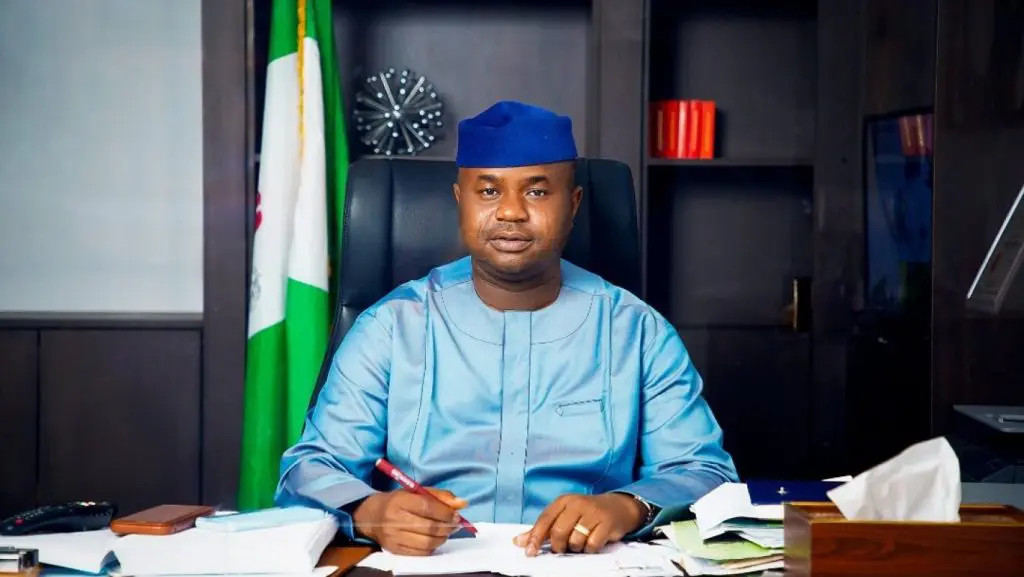Tinubu's Tax Reform Bills: A Storm of Controversy
Former Governor of Sokoto State and Senator representing Sokoto South, Aminu Tambuwal, has launched a scathing critique of President Bola Tinubu’s proposed tax reform bill, asserting that its timing is utterly inappropriate considering the dire economic straits facing Nigerians. He voiced his concerns during a Sunday event where he distributed relief materials to flood victims and starter packs to over 1,000 beneficiaries of a skills acquisition program in his senatorial district. Tambuwal's statement highlights a growing wave of opposition to the bills.
Tambuwal's Condemnation of the Tax Reform
Tambuwal didn’t mince words, stating, “I believe this is a wrong time for any upward review of either VAT or any form of tax; the time is inauspicious, the time is very wrong.” He emphasized the already substantial hardship faced by Nigerians due to the devaluation of the naira and the removal of fuel subsidies. His argument is that focusing on alleviating this hardship, rather than increasing the tax burden, should be the government's priority. He cited Nigerian Bureau of Statistics data indicating that over 30 million Nigerians are currently living in abject poverty, further solidifying his stance.
The Senator's Actions Beyond Criticism
Beyond his vocal opposition to the proposed tax reform, Tambuwal's actions demonstrate a commitment to addressing immediate needs within his constituency. In Shagari, he collaborated with the National Emergency Management Agency to distribute relief materials to over a thousand flood-affected households. Similarly, in Bodinga, he partnered with the National Directorate of Employment to provide skills training to over 1,000 youths, showcasing a practical approach to tackling the issues faced by his people.
Northern Concerns and the Tax Reform Bill
The controversy surrounding the tax reform bills isn't limited to Tambuwal's criticisms. There's a significant groundswell of opposition, particularly in Northern Nigeria. Many believe the bills, in their current form, unfairly disadvantage the region. The Northern Youth Assembly, for instance, openly expressed their “unequivocal disappointment and dismay” with Deputy Senate President Barau Jibrin for supporting the bills, accusing him of insensitivity to the North’s economic plight. This viewpoint is shared by numerous other groups and individuals.
Governor Zulum's Concerns
Borno State Governor, Babagana Zulum, further amplified these concerns. He stated on Channels Television that based on their own research, only Lagos and Rivers States stand to significantly benefit from the proposed VAT redistribution, while Northern states would face substantial losses. Zulum emphasized the need for more time and deeper consultation before pushing the bill through the legislature, highlighting the need for a comprehensive understanding of the implications of the bill.
Experts Weigh In
Adding to the complexity, economic experts are divided on the bills’ overall impact. Some experts believe the bills will boost Nigeria’s revenue, citing arguments presented by Taiwo Oyedele, Chairman of the Presidential Fiscal Policy and Tax Reforms Committee. However, others express grave concerns, with Engr. Bashir Ishaq Bashir, a former gubernatorial candidate, warning that Section 77 of the Tax Reform Bill could deepen economic inequalities between the North and South. His analysis points to a scenario where Lagos would significantly benefit at the expense of Northern states.
A Deeper Dive into the Taxation of Income of Persons
The proposed taxation of income of persons (TIP) is another point of contention within the tax reform bills. Experts at a recent webinar organized by the Chartered Institute of Taxation of Nigeria (CITN) highlighted several grey areas requiring clarification. For example, the N150 million threshold for asset disposal was deemed too high, and ambiguities surrounding income brackets between N800,000 and N2.2 million generated concerns. These expert analyses further complicate the debate surrounding the bills, suggesting a lack of comprehensive consideration of all possible scenarios and implications.
Diverse Perspectives and Potential Benefits
However, not all viewpoints are negative. Some, like Mohammed Bappah, highlight potential benefits, including reduced multiple taxation and increased transparency and accountability in tax collection. He also emphasized the potential for improved competitiveness in the global market. This highlights a critical need for objective and comprehensive analysis of all the proposed legislation’s potential benefits and drawbacks, rather than relying on selective interpretations to fit pre-existing biases.
The Path Forward: Navigating the Tax Reform Debate
The controversy surrounding President Tinubu's tax reform bills exposes deep-seated regional inequalities and economic anxieties. The debate underscores the importance of transparency and robust public dialogue in shaping economic policy. The passionate and diverse reactions from prominent political figures, Northern Nigerian leaders, and economic experts illustrate a need for a more balanced and inclusive approach that addresses the concerns of all stakeholders before final enactment. A careful consideration of regional disparities and the potential for increased hardship amidst existing economic challenges is paramount to avoid exacerbating existing inequalities and to ensure equitable economic development for all Nigerians. Going forward, a broader consultative process involving all stakeholders is urgently needed to ensure that any tax reforms are effective, fair, and truly serve the interests of the entire nation. The ultimate success of these reforms will hinge on their ability to address the immediate concerns of the populace while striving towards long-term economic stability and growth for Nigeria.


















